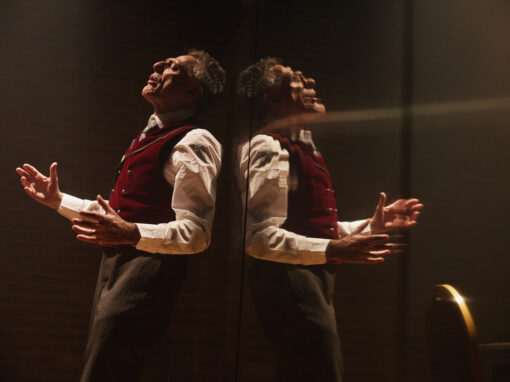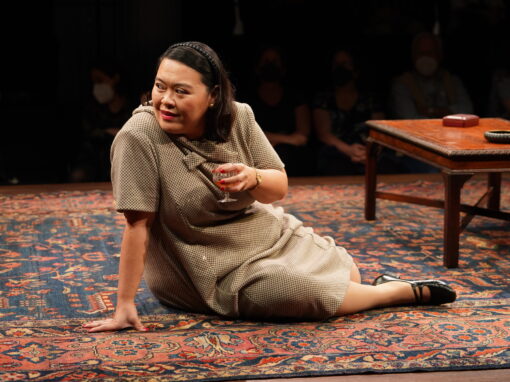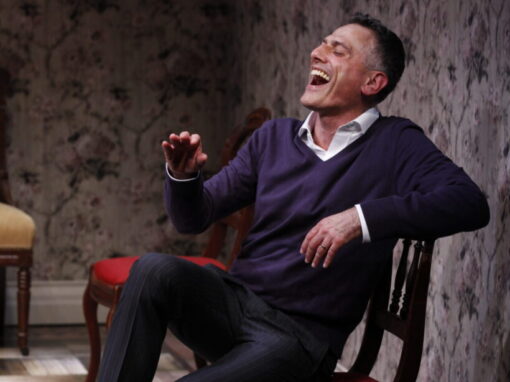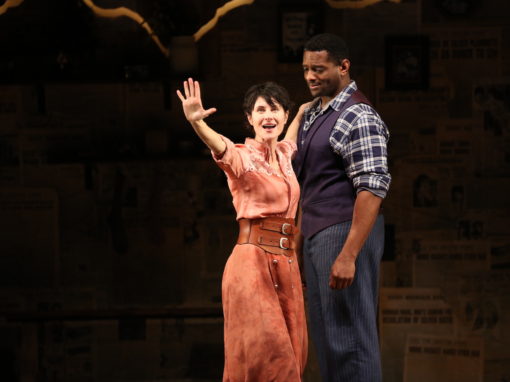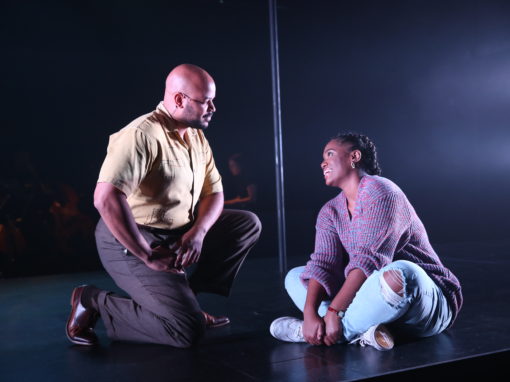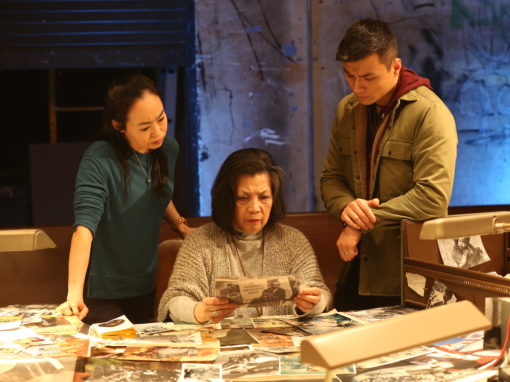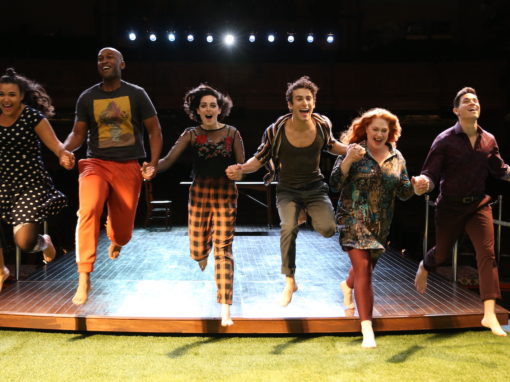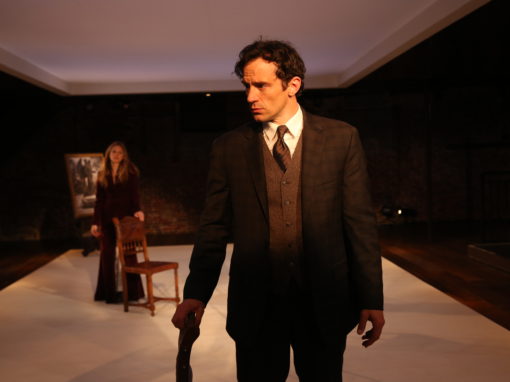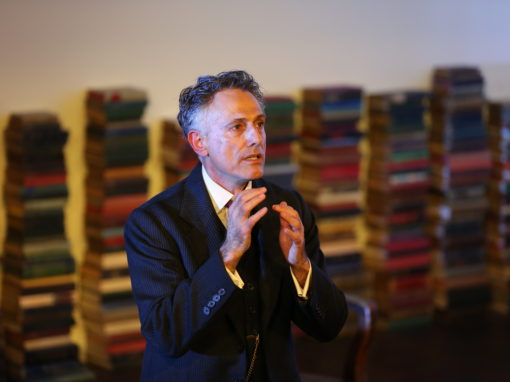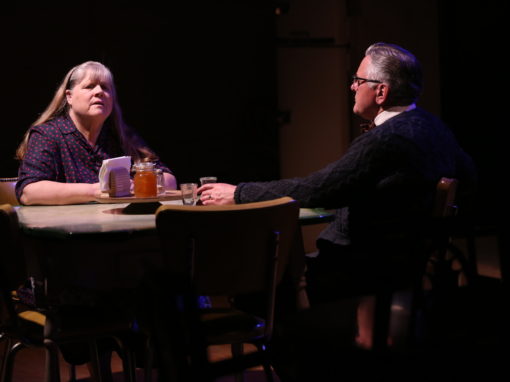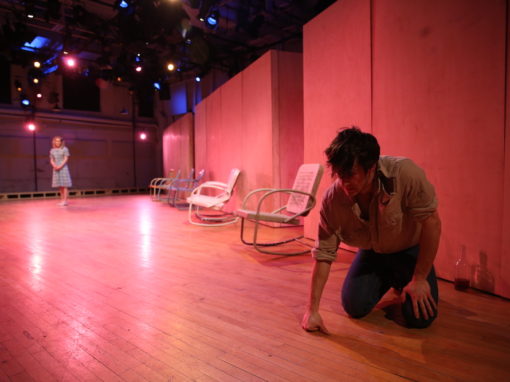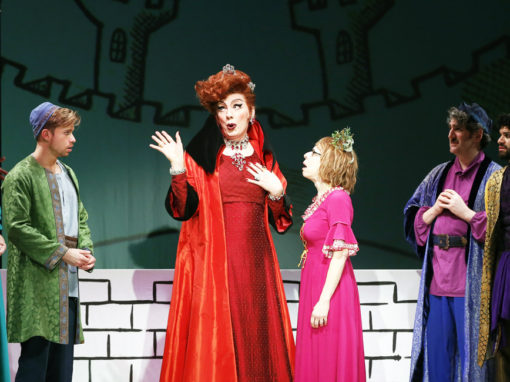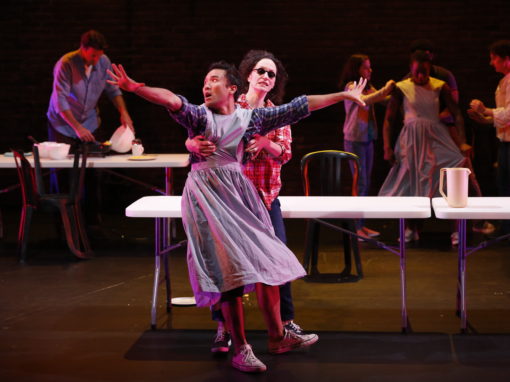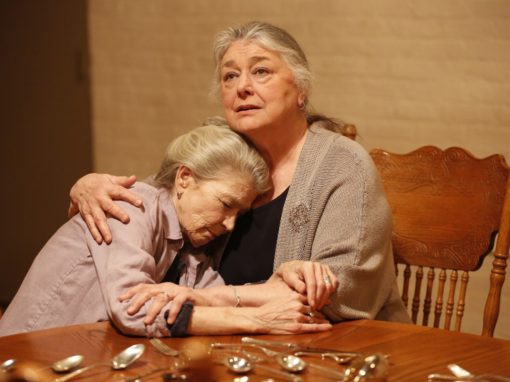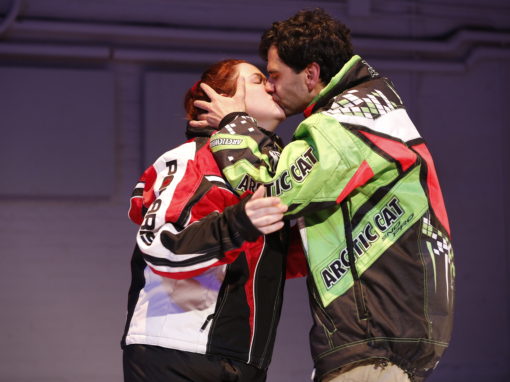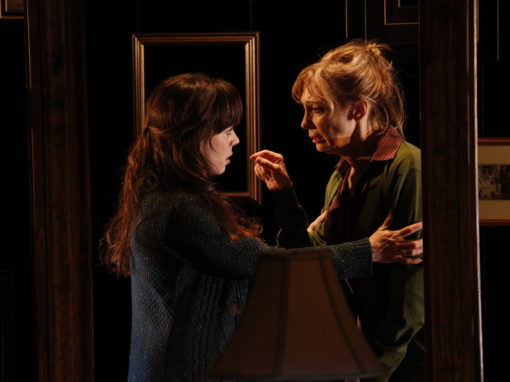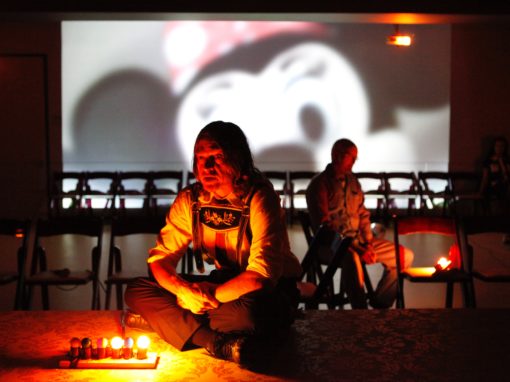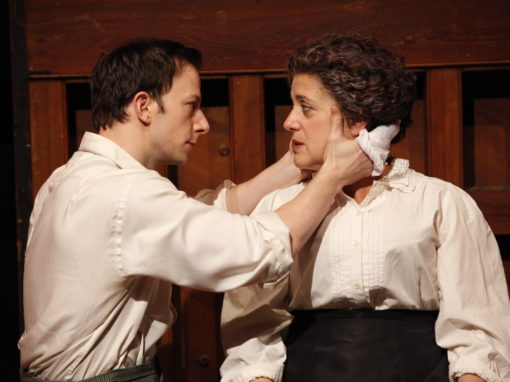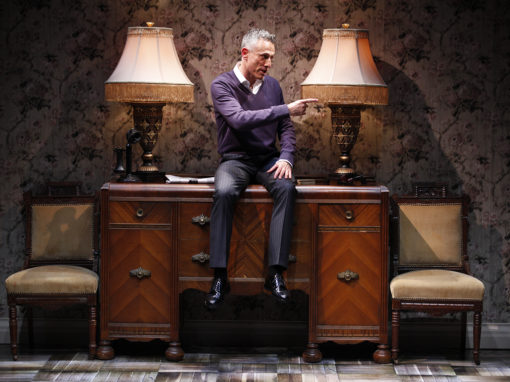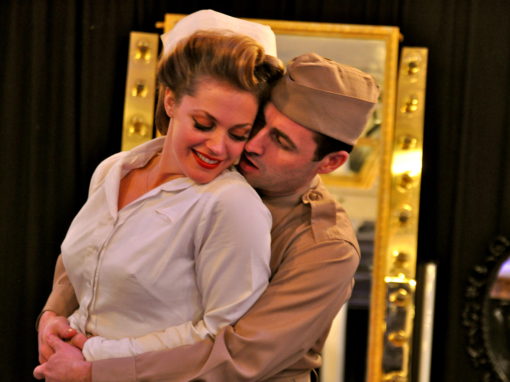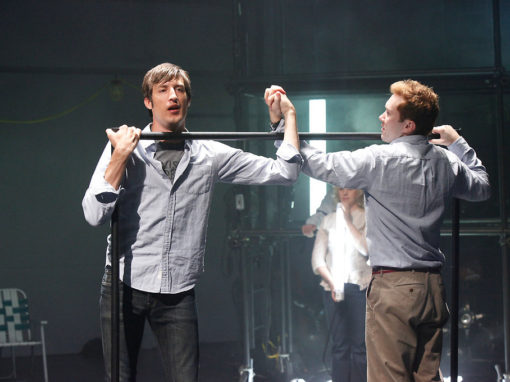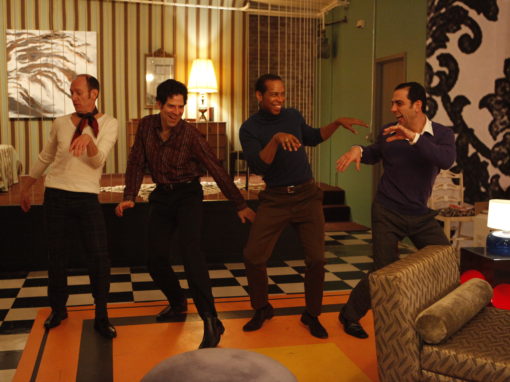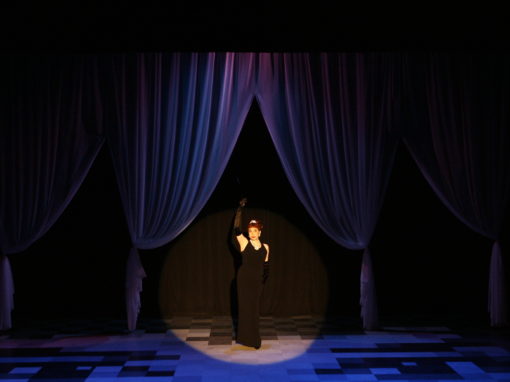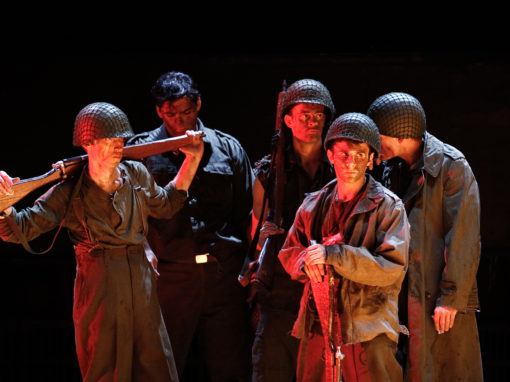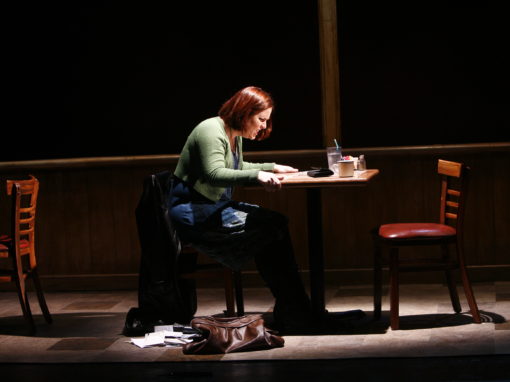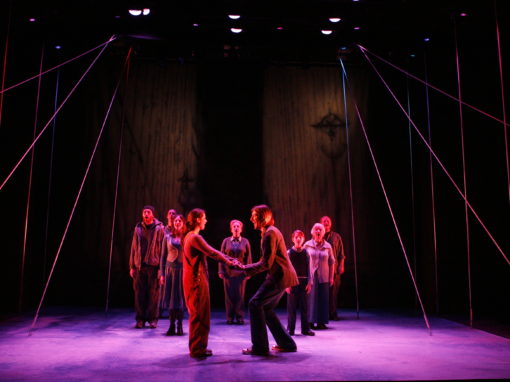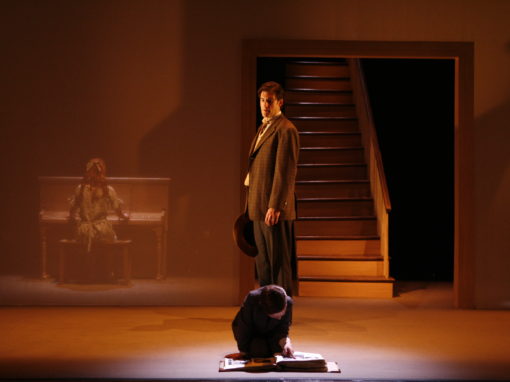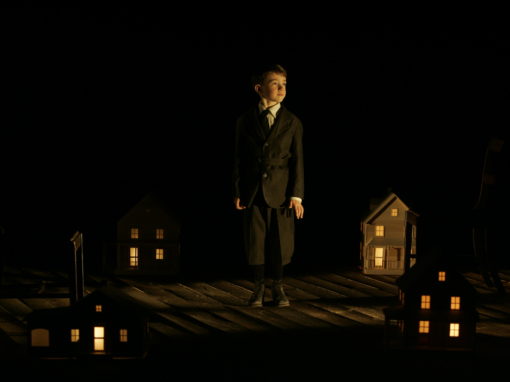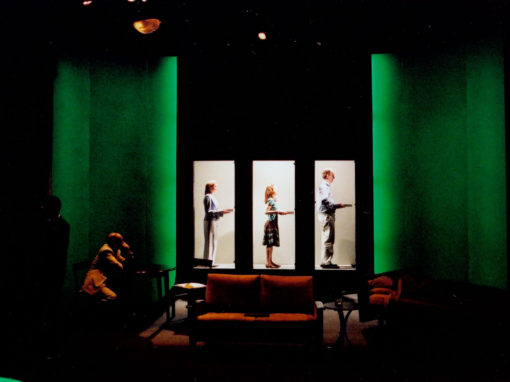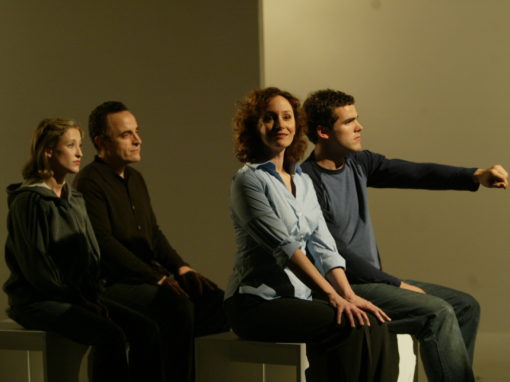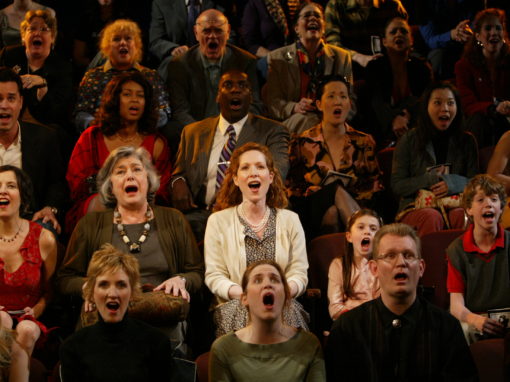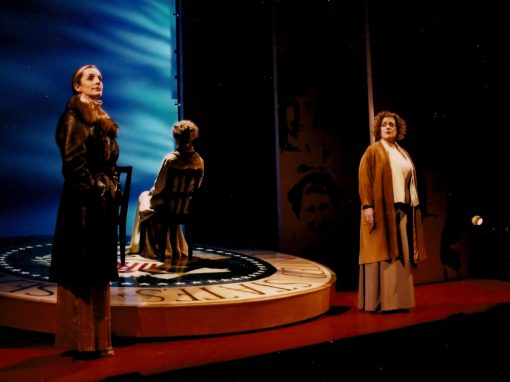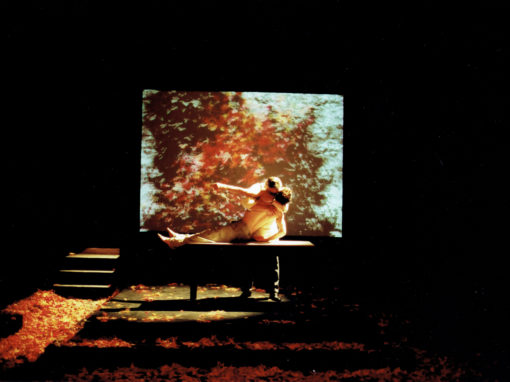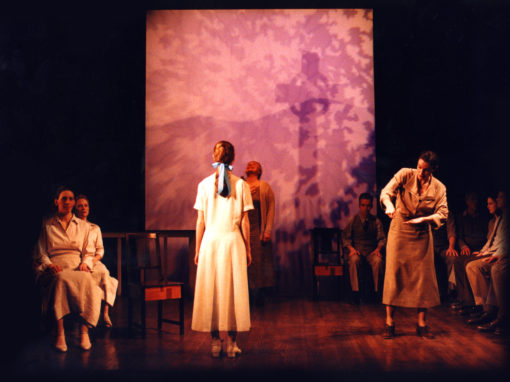An Enduring Thread // by Jack Cummings III
It takes a village to raise a new musical, and for Jack Cummings, one person in particular leaves a lasting impact.
When working on a new musical, supporting characters can be among the most frustrating people you could ever meet. They can easily be that dinner guest who dominates the conversation and overshadows everyone else at the table—or worse, say nothing and take up a much-needed seat like a stack of old phone books. And yet they’re there. You need them there because at their best, they’re the guest who brings that perfect bottle of wine which ultimately makes the main course taste better than any meal you ever could have imagined.
For me, writers who successfully create supporting characters are magicians. Through their invisible brilliance, they allow us to invest in these people as much as we invest in the lead character. They take us deep into their hearts—if only for a brief moment—and make us feel as if we have never wanted to be anywhere else. They create full human beings who while telling us about themselves are secretly telling us about the main character and pushing the story into places it never would have gone otherwise. How writers can pull this off remains a mystery to me.
A few years ago, I was working on a new musical called Renascence. This was an exciting new musical about the famous American poet Edna St. Vincent Millay who shot to stardom in 1912 with the epic poem for which our show was named. Composer Carmel Dean had set Millay’s poems to music and librettist Dick Scanlan had created a story that explored the poet’s younger years, chronicling the impact Millay made not only on the world but specifically her family. Dick and I co-directed—an experience I’d never had before, let alone with the writer of the show. This partnership ended up having many advantages with one in particular. Whenever we ran into parts of the book that weren’t working, Dick would already be there as co-director and understand the challenge immediately right along with me. There was no time lost in communicating the issue at hand. And on a new musical, you need every second you can get.
One day during rehearsals for the workshop (which proceeded our production by six months), a frustrating issue began to arise with—you guessed it—one of the supporting characters. What was annoying was that in the several readings we had done over the years, this character had always seemed to be working fine. But as is often the case, new musicals trick you into thinking they’re working and then one day—when you least expect it—they randomly start to give you problems in a type of sneak attack that can seem downright cruel. The character in this case was a woman named Caroline B. Dow, an actual person in Millay’s life. Caroline B. Dow was an older woman who was Millay’s first patron. One could even argue she discovered Millay. In 1912, she heard the unknown Millay recite the then unpublished Renascence at an inn in Maine. Recognizing her genius immediately, Dow offered Millay significant financial help (Millay’s family was poor and close to abject poverty often) as well as making sure she was admitted to Vassar. In the process, the two of them became close friends with Dow being Millay’s biggest champion in those crucial early years. This is all to say, Caroline B. Dow was vastly important to Millay’s life and as a result, a pivotal part of our show. She wasn’t going anywhere. She was staying for dinner.
But as needed as she was, we were all beginning to struggle with Ms. Dow. Dick’s primary goal in writing her was to add some needed humor at times in our mostly serious story. And believe me, when you are telling a serious story, moments of humor are as cherished as diamonds. You never want to let go of them for any reason. But Danny Harris Kornfeld who was playing Caroline, wasn’t connecting with her and Dick and I were clumsily searching for ways to help him with not much success. We’d listen to the scenes over and over thinking we were just one magical thought away from cracking the inner code of what was already written—all the while my inner critic smugly reminding me this character had always worked before (I started to think I should fire my inner critic as they weren’t being much help). Then one day after rehearsal, Dick and Carmel and I sat together going over our notes for the next day’s rehearsal when once again, the conversation circled back to Caroline B. Dow—how were we going to make this character work!? One of the main reasons supporting characters can be tricky when compared to leading characters is you just don’t have a lot of time and space to work with—like that Project Runway challenge where they say create an evening gown with five dollars and only use corn husks and wrapping paper.
During this meeting, I started to wonder out loud about what drove Caroline B. Dow to help Vincent (Millay’s preferred name). This then led me to ask what drives any individual with means to help artists create art? What inner part of a person says, “Go help this person purely for the sake of helping them.” And where does that inner cue come from? What is the impulse? What’s behind that impulse? There has to be more to this person, something deeper that motivates this selfless generosity—especially when the artist is at the beginning of their journey and has no fame, money, or recognition to offer this rare individual in return for their benevolence. As our conversation progressed, I started to think of one particular individual in my own life who in some ways resembled Caroline B. Dow—a single woman of means who gives selflessly to help artists achieve their dreams. Her name is Anne L. Bernstein.
At the time of Renascence in 2018, Anne L. Bernstein was a cherished member of Transport Group having joined our board in 2005. Anne was generous in all ways. She not only gave us the financial means to help us achieve our artistic goals, but she believed deeply in Transport Group with a strength and conviction that was, in a word, unwavering. She never judged our work but tirelessly encouraged our voice and all we had to offer New York City’s theatrical landscape. Simply put, she was with us for the long haul. I can’t begin to express what someone like Anne means to an artistic director of a non-profit theatre company. When you have someone like Anne behind you, you feel as if you can fly—you can take risks—you can make mistakes—you can sleep at night knowing you get to try again tomorrow. This is everything to an artist.
And so, I began to tell Dick and Carmel all about Anne—the way one tells friends about their favorite aunt who is always there for them, come rain or come shine, as the song goes. I told them that my impression of Anne was that she stood by us not only because she loved theatre, but because she believed in the artist as an invaluable part of being alive. Whenever she would talk about any artist in the theatre, her eyes would light up and you could just feel the love and admiration she had for these people. Not having any children of her own, I felt she gave so generously of herself as a way of connecting with something that would last—artists and the art they create. The more the three of us talked about Anne, the more the possibilities for Caroline B. Dow began to open up. The magical thought we had been looking for to crack open this character ended up being a magical person: my friend, Anne.
As our meeting was coming to an end, Dick said, “Let me go away and think on all this and see what I come up with.” Carmel and I both thanked him for what we were certain would not be an easy task.
The next day, Dick walked into rehearsal with what would end up being my favorite scene in the show:
VINCENT
Miss Dow, I don’t know how to begin—
CAROLINE B. DOW
Pack now, thank later.
VINCENT
Why are you doing this?
CAROLINE B. DOW
Vincent, who was the first person to hear Beethoven’s First Symphony?
VINCENT
I don’t know.
CAROLINE B. DOW
No one does. But whoever she was, she knew what she was hearing. Even if she was tone deaf, unable to distinguish one pitch from the next, she recognized a kind of truth in the first few measures of that very first symphony. That’s how I felt the first time I heard “Renascence.” You have at least eight more symphonies inside you just waiting to be written. I’d like to leave this planet having helped you write them.
VINCENT
And if, a century from now, no one knows who you were?
CAROLINE B. DOW
All they’ll need to know about me will be woven into your words.
Suddenly, Caroline B. Dow (who was thankfully still funny) emerged as a full character of her own while also providing us with enormous insight into Millay. In Dick’s words, “This is the most relational moment Vincent has in the course of the story.” As we rehearsed, Danny no longer struggled with the character and Dick and I were able to successfully help him when needed. Millay’s journey was now richer, and the show began to gain strength and depth. Caroline B. Dow was finally that dinner guest that brought the perfect bottle of wine you didn’t know you were craving until she showed up at your door.
Dick’s pivotal scene for Caroline has special meaning for me lately. We lost Anne the first week of February. She died in her sleep of a heart attack. She was 72. Along with her family and friends, I was crushed when I heard the news. I have never known a more generous person in my life. Her love for artists and the theatre was as pure as it gets. Whenever I went to her for help, she never made me feel badly for asking—quite the opposite—she was genuinely excited by the sheer opportunity to help. To say Transport Group is where we are today in large part because of Anne is an enormous understatement.
As we were planning the full production of Renascence, it became clear that Carmel’s magnificent score would need a significant sized orchestra to do it justice. Legendary orchestrator Michael Starobin had agreed to do the show and after careful discussions, he and Carmel agreed that eight musicians would be necessary to bring the music to life. I agreed of course but I also panicked knowing what such an orchestra would cost. I went to Anne and asked for her help. I had barely finished making my large request when she jumped in and said, “Yes!” I’ll never forget it. Her unabashed love in that moment will stay with me forever.
While all of us who knew Anne miss her terribly, I try to focus instead on remembering her—celebrating her in my heart. To do this, all I have to do is put on the cast album of Renascence and listen. For there is Anne. Woven into the words. Woven into the music. Forever.
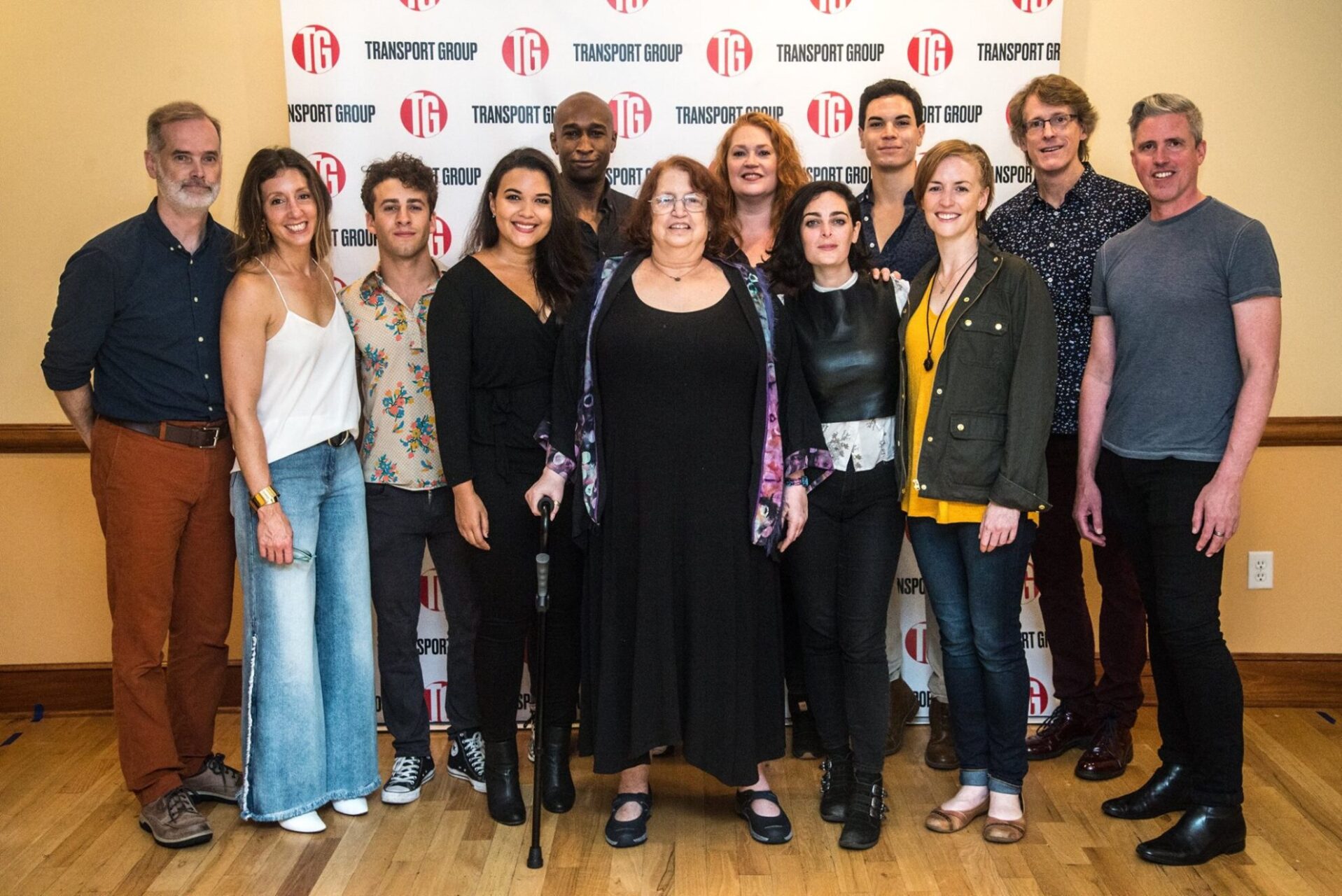
About the author:
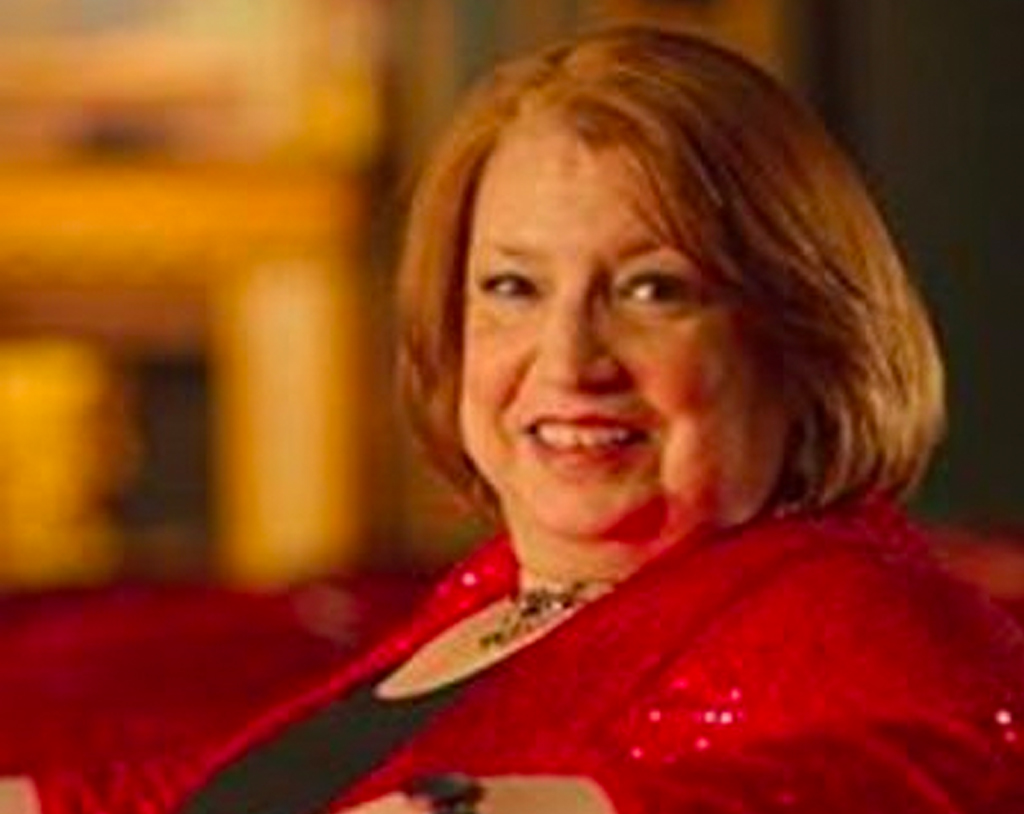
Explore Our Past Shows
